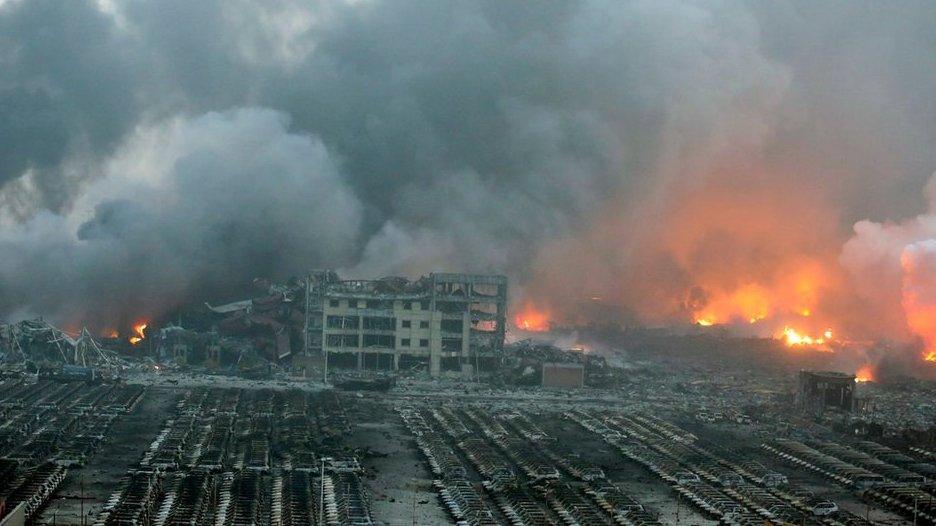Tianjin chemical blast: Deadly disaster marked one year on
- Published
Zhang Mengfan says the public deserves to know what happened in the Tianjin blasts
China's leaders may want muted commemorations to mark the first anniversary of the massive chemical blast that killed 173 people, but not everyone agrees. John Sudworth reports from Tianjin.
Almost anywhere else in the world the anniversary of a disaster of this magnitude would present a moment of national soul-searching.
But not in China.
While a memorial service to some of the dead firefighters is being held in the city of Tianjin, elsewhere the tributes are being muted.
The Communist Party-controlled media is being told what it can and cannot say and some survivors, as well as family members of the dead, are being warned not to speak to the foreign press.

A huge crater was created in the aftermath of the explosion
But 23-year-old Zhang Mengfan won't stay quiet.
"On this anniversary there should be a way for the public to know what happened," he tells me. "I don't want silence."
On 12 August last year, Mr Zhang was a radio operator with a military fire brigade, stationed just a kilometre from the epicentre of the explosions.
"The call came in at 10:53 that night and we started to despatch my teammates," he says. "It would have taken them 10 minutes to get to the scene."
Other crews from elsewhere in the city were also arriving to tackle the large fire in a chemical storage depot.
All of them would have been oblivious to the fact that large quantities of volatile and toxic substances were being illegally stored, way beyond permitted amounts and without proper management.
The fire had started when a batch of nitrocellulose - a chemical used in nail polish - had been allowed to dry out and then ignited in the summer heat.
It then spread to a huge stockpile - 800 tonnes - of ammonium nitrate fertilizer.
The resulting explosions shattered the windows and brought the roof in at the fire station where Zhang Mengfan was waiting by the radio for reports from the scene.
Those reports never came in.
"When I saw the mushroom cloud I fell into a state of desperation," he tells me. "I knew what it would mean for my friends."
Of the 26 firefighters sent to the blaze from his unit that night, eight never came back.
Many of the others suffered serious burns and other injuries.
The biggest of the two large explosions was measured as a seismic event, with a blast wave that was felt many kilometres away.
The total cost of the damage was put at more than $1bn, including the 300-plus buildings that were destroyed.
A total of 173 people lost their lives - 104 of them firefighters. Eight bodies have never been found.
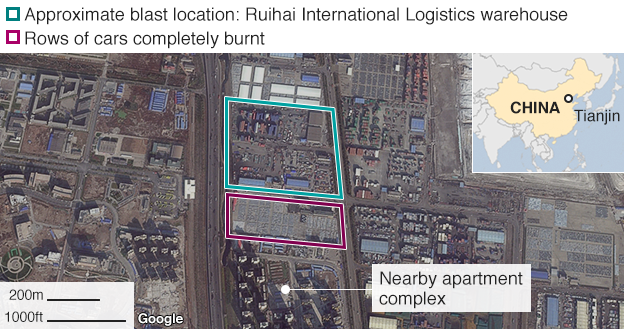
Travelling into Tianjin blast zone
Story of the blasts as told by witnesses
Tianjin pictures reveal destruction
An official government enquiry has laid the blame squarely at the corruption, political connections and official collusion that allowed corners to be cut and safety systems to be overridden.
The storage depot should never have been built so close to residential buildings in the first place.
More than 100 officials and company executives are facing some kind of disciplinary or criminal investigation.
So while the government can point to the progress that has been made - the thousands of homes repaired and the residents compensated - those lingering sensitivities remain.
The disaster has exposed the cracks in a system where rapid economic growth is a priority and the lack of independent oversight is a fact of life.
The bravery and sense of duty that night cannot be doubted and yet alongside the image of the firefighter as hero, there is the other uncomfortable picture.
That of the firefighter as victim, sent without proper knowledge into an avoidable, man-made catastrophe.
Zhang Mengfan has now left the fire service but will attend the memorial service in Tianjin.
He will be carrying in his heart a message for his dead comrades.
"What I want to tell them most is this: I've been to visit your parents and they are fine. Leave your parents to me. I am a member of your family now. I will fulfil your filial duty."
- Published12 August 2016
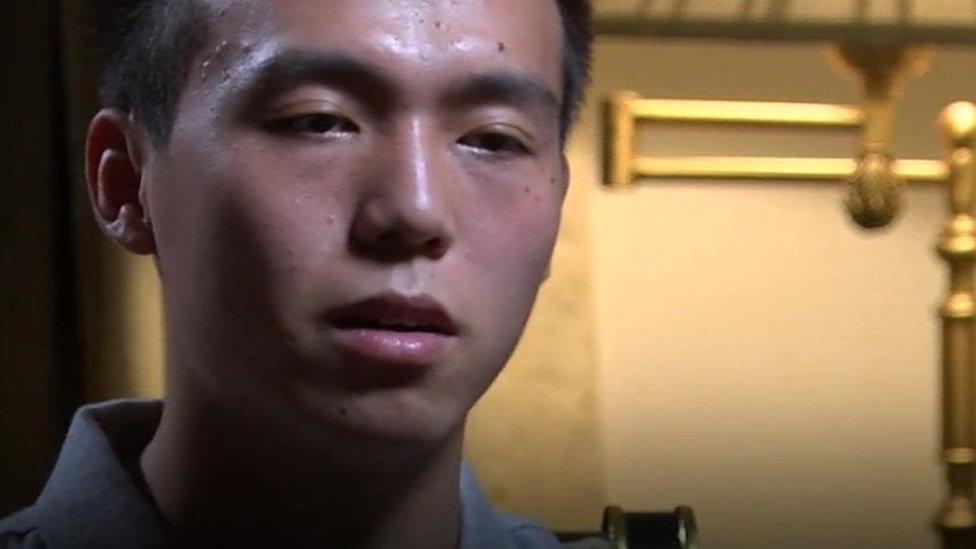
- Published13 August 2015
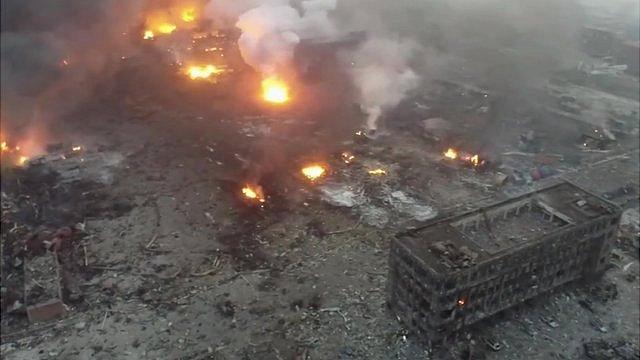
- Published13 August 2015
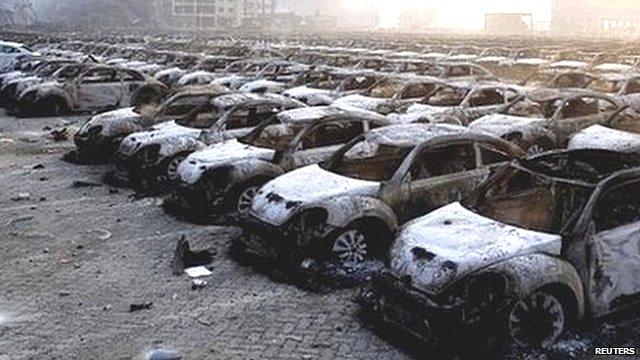
- Published13 August 2015
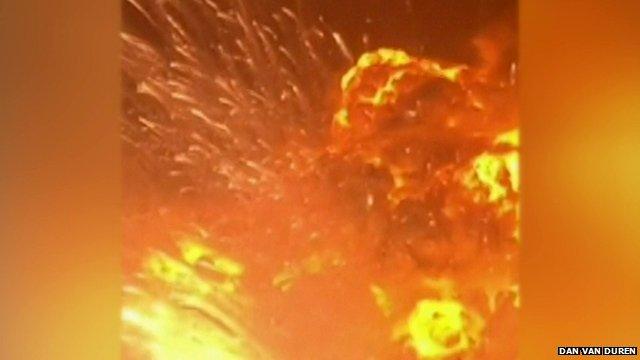
- Published13 August 2015
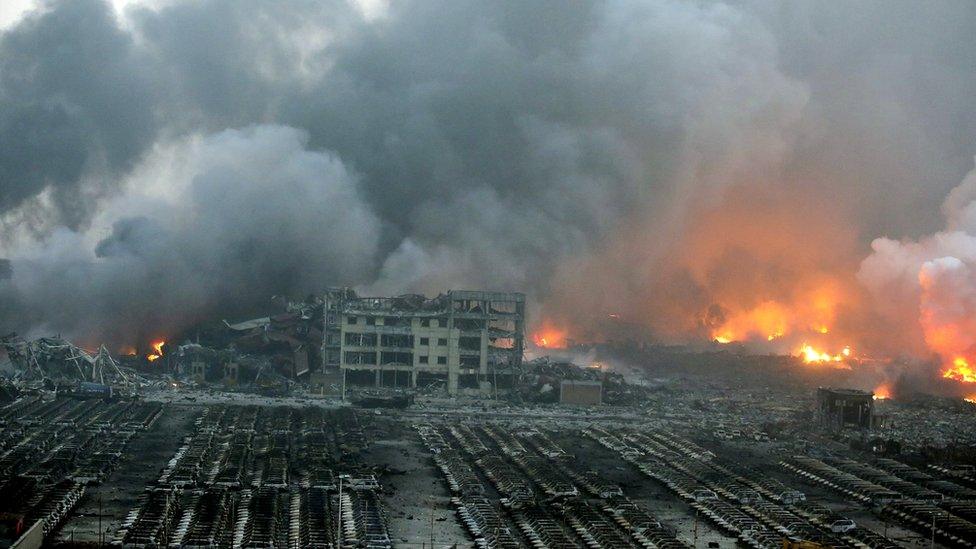
- Published13 August 2015
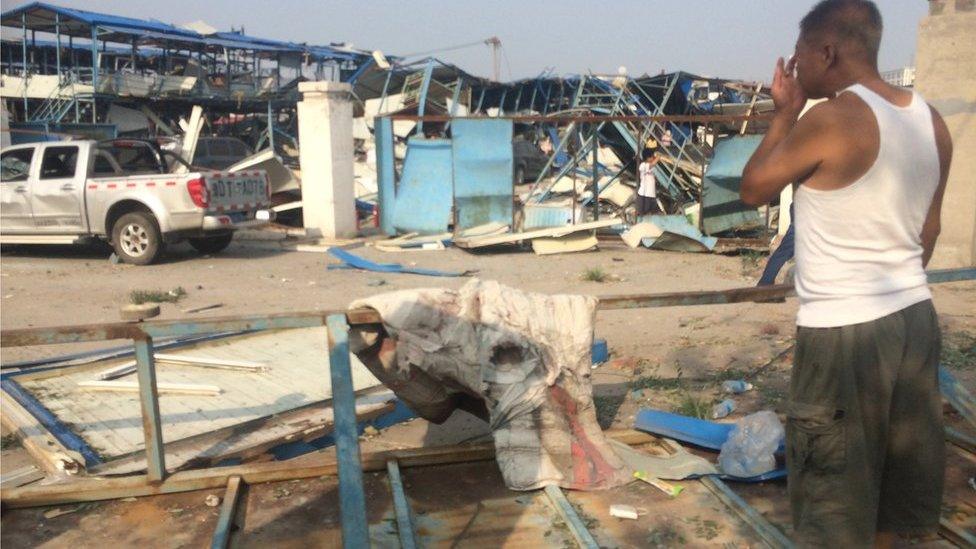
- Published13 August 2015
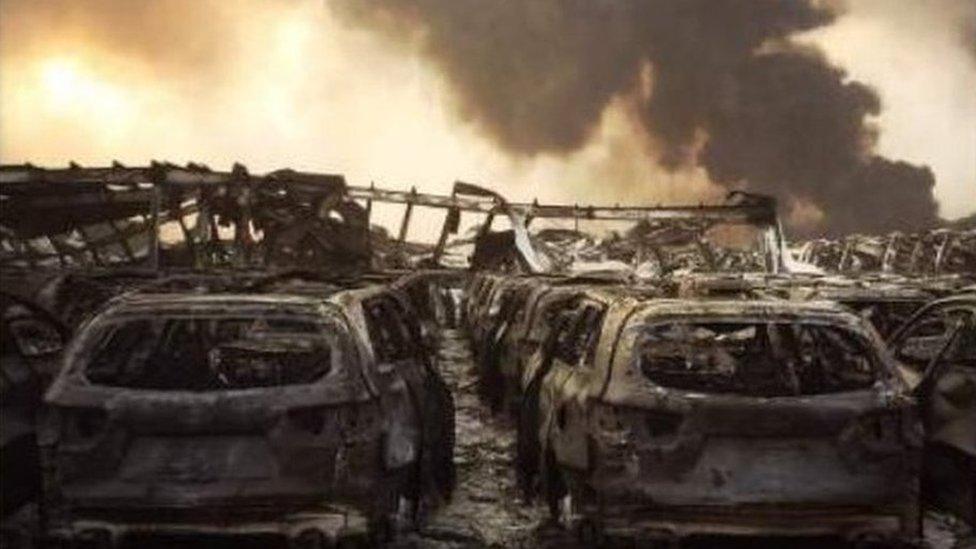
- Published13 August 2015
